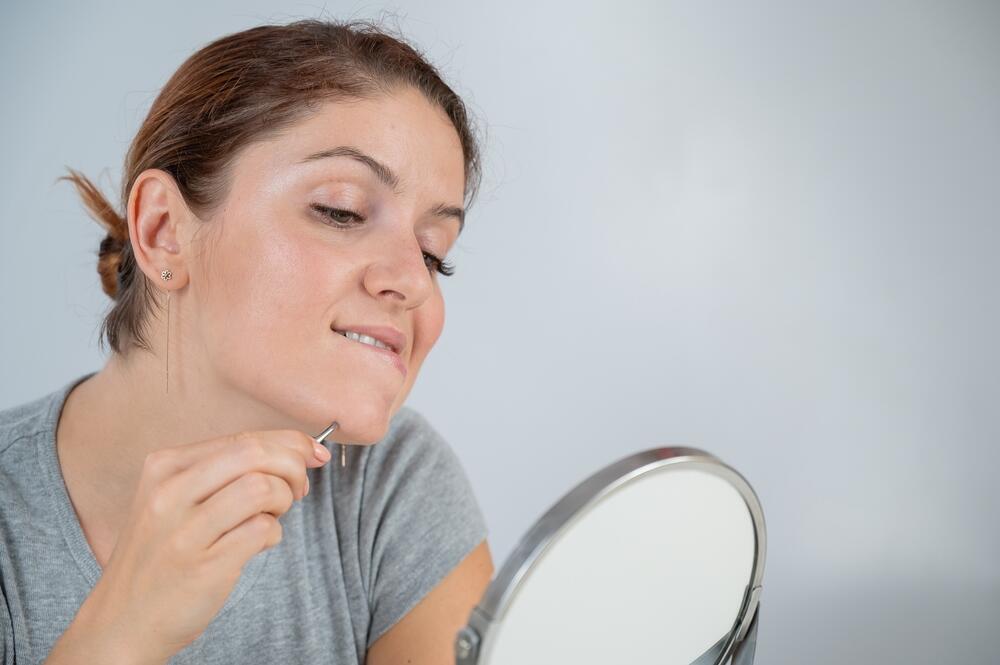Getting your Trinity Audio player ready...
It’s a common experience for many women, particularly as they approach age 40: discovering an unexpected hair on the chin or neck. After the initial shock and the angry pluck with tweezers, many find that another hair grows back in the same spot the next day.
Facial hair in these areas is a well-known and widespread phenomenon among women. Often, a rogue follicle may sprout in various spots, which is typically harmless and normal, as our skin is covered in hair follicles, most of them invisible. However, in some cases, excessive facial hair growth, known as hirsutism, may require medical attention.
Hirsutism, characterized by the growth of dark, coarse hair, results from an excess of androgens, male sex hormones. This can occur in isolated or multiple areas, commonly appearing above the upper lip, on the chin, neck, ears, inner thighs, cheeks, back, chest and lower abdomen. While hormonal imbalance often causes this, it can worsen with age, though some young women also struggle with hirsutism and excessive hair growth.
Eight potential causes of facial hair growth in women
Polycystic Ovary Syndrome (PCOS): Affects 8-13% of women, with 70% undiagnosed. Symptoms include irregular periods, weight gain, adult acne, fertility issues and increased facial hair. While there is no cure, lifestyle changes or surgery can manage the condition.
Age: Post-menopause, facial hair growth often increases. While this may become a fact of life, consulting a doctor to rule out underlying issues is advisable.
Weight changes: Significant weight gain or loss can be linked to facial hair growth. If this occurs, medical advice should be sought.
Ethnicity: Facial hair growth is more common in certain ethnic groups, particularly among women of Mediterranean or Middle Eastern descent. If the issue worsens, medical consultation is recommended.
Medication or disease side effects: Rarely, certain medications, including chemotherapy drugs, epilepsy medications and anabolic steroids (often used illegally in sports), can increase facial hair growth in women. These drugs can cause severe side effects if used without medical supervision.
 Dr. Sivan Mercer
Dr. Sivan MercerEndocrine disorders: Conditions like Cushing’s syndrome, resulting from prolonged exposure to cortisol, a hormone produced by the adrenal glands, can also cause facial hair growth.
IPL treatments: Light-based treatments for conditions like rosacea can inadvertently stimulate hair growth in treated areas.
Hair loss medications: Topical treatments for scalp hair loss can sometimes drip onto the face, encouraging unwanted hair growth.
Regarding tweezers, they are not recommended for chin hair removal. Better methods exist, as tweezing can cause incomplete removal, redness, inflammation or pigmentation issues, potentially worsening the problem.
- The author is a specialist in dermatology, aesthetics and laser treatments.


